Visit Cuba, and you’ll experience sun, sand, beach, and… oh yeah, mosquitoes and sand fleas.
Although Cuba is generally a safe country to visit, mosquitoes may represent a health hazard for travelers. In most cases, mosquito bites will be just an annoyance.
However, Cuba’s year-round heat and humidity, the poor infrastructure and waste management practices, and the Government’s lack of access to newer mosquito control tools all contribute to frequent mosquito-borne disease outbreaks.
In this guide, we will help you stay safe from mosquitoes and sand fleas so they don’t ruin your vacation.
How Bad Are Mosquitoes in Cuba?
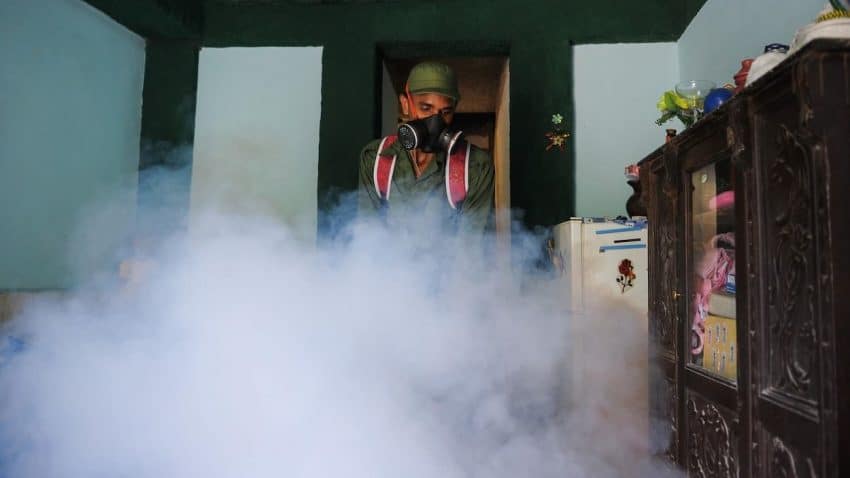
Mosquito bites may be pretty bad in Cuba. Although the government has recently stepped up its efforts to fight mosquitoes in Cuba, mosquito-borne illness outbreaks are still common.
However, how many mosquitoes you encounter depends on when and where you go on the island.
Mosquito Season
Cuba is home to a year-round mosquito community, but mosquitoes worsen during the rainy season. The wet season in Cuba runs from May to October, when the island gets most of its annual rainfall. Since mosquitoes love damp weather, you’ll see more during the wet season.
Mosquito Territory
While mosquito activity can vary across different regions in Cuba, some areas may be more prone to higher mosquito populations.
Here are a few locations where mosquitoes may be more prevalent:
- Coastal areas: mosquitoes can be more common in coastal regions, especially those with mangroves, such as the keys in the island’s northern part.
- Wetlands: areas with standing water, such as the Zapata Swamp and lagoons, are favorable breeding grounds for mosquitoes.
- Rural and vegetated areas: places with dense vegetation, rural landscapes, and agricultural regions, such as the Viñales Valley in Pinar del Rio, may have higher mosquito populations.
- Neglected neighborhoods in major cities: poor infrastructure is a widely known problem in Cuba. However, waste management and drainage systems can be notably worse in certain areas of major cities, such as El Fanguito, La Timba, Los Sitios, or Los Pocitos in Havana.
Diseases You Can Get From Mosquitoes in Cuba
Most mosquito bites in Cuba won’t lead to a virus. However, mosquitoes might be vectors for some serious blood-borne diseases in Cuba, such as Dengue, Chikungunya, and Zika.
Cuba experiences yearly Dengue outbreaks, so the risk of catching Dengue Fever is much higher than catching Chikungunya or Zika.
The last reported case of Zika was way back in December 2019. While isolated cases occasionally crop up, there’s never been a Chikungunya outbreak in Cuba.
These diseases aren’t unique to Cuba or a high risk to travelers, but you should be aware of them and their symptoms if you get sick while traveling.
You should seek medical treatment immediately if you experience fever, rash, vomiting, body aches, and headaches lasting more than 24 hours.
How to Avoid Mosquito Bites in Cuba

Fun fact about Cuba: 100% of travelers to Cuba want to avoid getting bit by mosquitoes – just kidding, that’s not an official statistic, but I think we can agree that nobody enjoys getting bit!
Luckily, there are a few strategies you can take advantage of to keep mosquitoes away during your trip.
Bring mosquito repellent
We recommend carrying a can of DEET repellent with you at all times. Please consult the EPA guide to using insect repellents safely for more tips.
Bring electric mosquito coils
When mosquito repellent alone isn’t enough to keep the critters at bay, you may want to add a mosquito coil to your arsenal.
If you plan to venture away from the coast and into the muggy countryside, a mosquito coil should be on your list of things to bring to Cuba.
Spray permethrin on clothing and gear
You can supplement your DEET or eucalyptus oil with a permethrin insect repellent. This is a powerful synthetic repellent, so avoid contact with the skin and use it on your clothing or gear.
If you do wild camping, sleep in a mosquito bed
If you do wild camping in Cuba, prepare for a shocking number of mosquitoes in the rugged countryside. A nighttime mosquito net is an absolute must.
If you go out during peak times, wear clothing that covers your arms and legs
Mosquitoes are most active at sunrise and sunset. If you must venture out during peak mosquito hours, cover your body with long sleeves, pants, and shoes instead of sandals.
Close all doors and windows when going to bed
You might be tempted to leave your windows open for a cooler breeze to circulate on a hot night. Unfortunately, doing this means you’ll probably wake up with unwanted guests in your room: mosquitoes!
Close your doors and windows before you sleep to keep the bugs outside where they belong.
Treat the symptoms if you get bit
Even if you take every precaution, you’ll probably still end up with a couple of mosquito bites.
You can soothe the symptoms with Tylenol and Hydrocortisone Cream. Don’t take aspirin or other non-steroidal anti-inflammatory drugs (NSAIDs)! If you come down with Dengue fever, aspirin can worsen your symptoms.
Finally, please bring travel health insurance to Cuba. In the event of a mosquito bite leading to an illness, having health insurance can help cover medical expenses, including hospitalization and treatment. We recommend Insubuy’s travel insurance plans for Cuba.
Sand Fleas in Cuba: How to Avoid Them
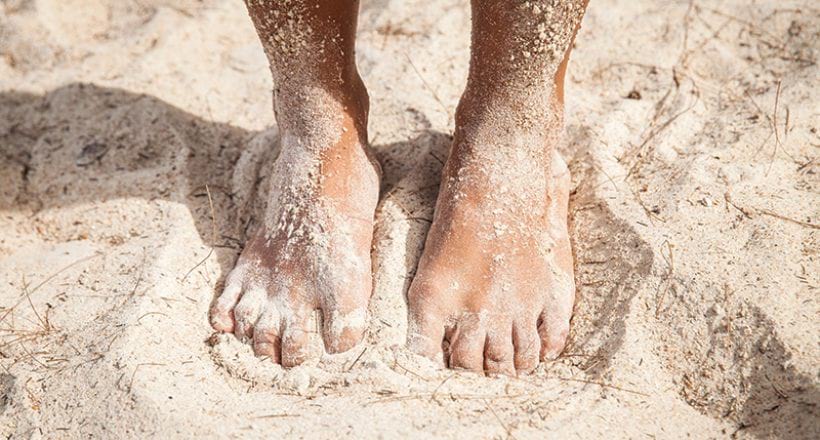
Mosquitoes aren’t the only pesky insects to watch out for in Cuba. There are also sand fleas (“jejenes”)!
True to their name, sand fleas thrive on Cuba’s sandy, warm-weather beaches. Avoiding sand fleas and their itchy bites means following a few golden rules while on the beach.
Go to the beach at midday
Sand fleas are most active during the cooler times of the day, like early morning and twilight.
Don’t sit directly on the sand
Since sand fleas are mixed in with the sand, sand-proof beach blankets are best at keeping fleas away.
Stay off the beach after the rain
Rain drives sand fleas out of the sand and onto any climbable surfaces, including people!
Avoid the beaches for a few hours after it rains to allow the sand to dry out and the fleas to return home.
Don’t scratch the itches
If you get bit by a sand flea, you will have a powerful urge to scratch the itch. Don’t do it!
Scratching sand flea bites makes the itch worse and takes longer to heal. Instead, lather on soothing aloe vera gel, calamine cream, or tiger balm.
Staying Bug-Bite Free in Cuba
Bugs may be hard to avoid in Cuba. However, in most cases, sand fleas and mosquito bites in Cuba will result in just annoyance. Getting seriously sick from bug bites on the island is rare.
We hope the tips in this article will make you better prepared to deal with sand fleas and mosquitoes, even in the worst-case scenario. However, if you have important medical concerns, please consult your doctor before flying to Cuba.
Have you experienced serious bug bites in Cuba? Let us know in the comments!
Essential Travel Logistics For Cuba
Cuban Tourist Card – If your Cuban Tourist Card (a.k.a Cuban Tourist Visa) isn’t bundled into your airline ticket or travel package, buy it only through EasyTouristCard.
Travel Health Insurance – Travel medical insurance is an entry requirement for Cuba, so you can’t skip it. Travelers can get travel health insurance for Cuba via Insubuy. Travel protection benefits such as trip interruption and cancellation, baggage delay insurance, etc., are not required.
Essential Items to Pack – Bring the essential travel necessities that you may not be able to get in Cuba:
- First aid kit
- Hand sanitizer
- Face masks
- Water bottle with filter
- Sunscreen
- Mosquito repellent
- Pin adapter (for Europeans)
- Travel guide
- Spanish-English phrasebook
- Suggested Reading: The Cubans: Ordinary Lives in Extraordinary Times
Read our complete packing list for Cuba.
Find Accommodations – Find hotels or casas particulares (private accommodations) on Skyscanner, which lists thousands of accommodations available in Cuba.
Book Your Flight – Book cheap flights to Cuba on Skyscanner, our favorite flight search engine to find deals on flights to Cuba.

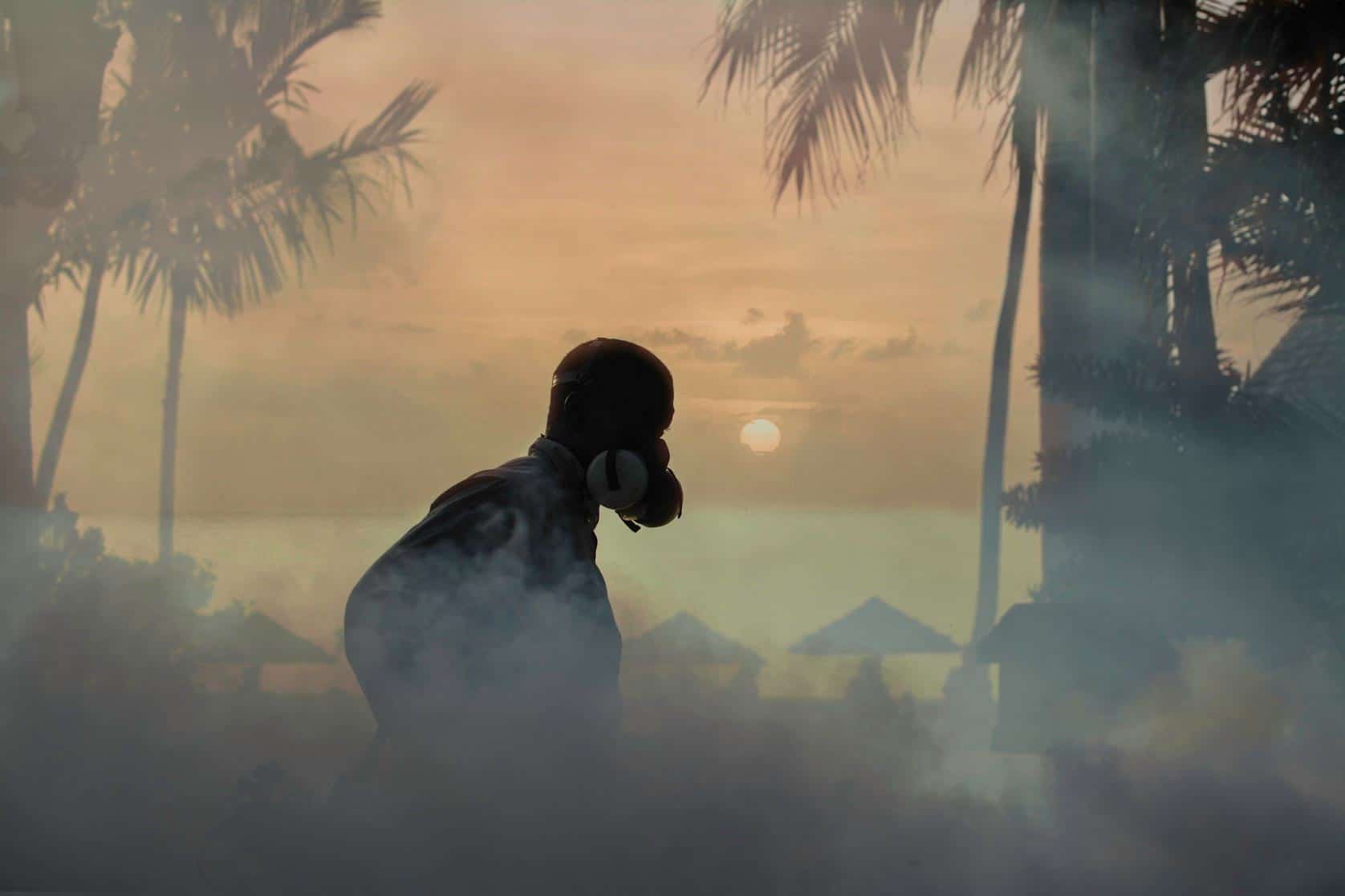

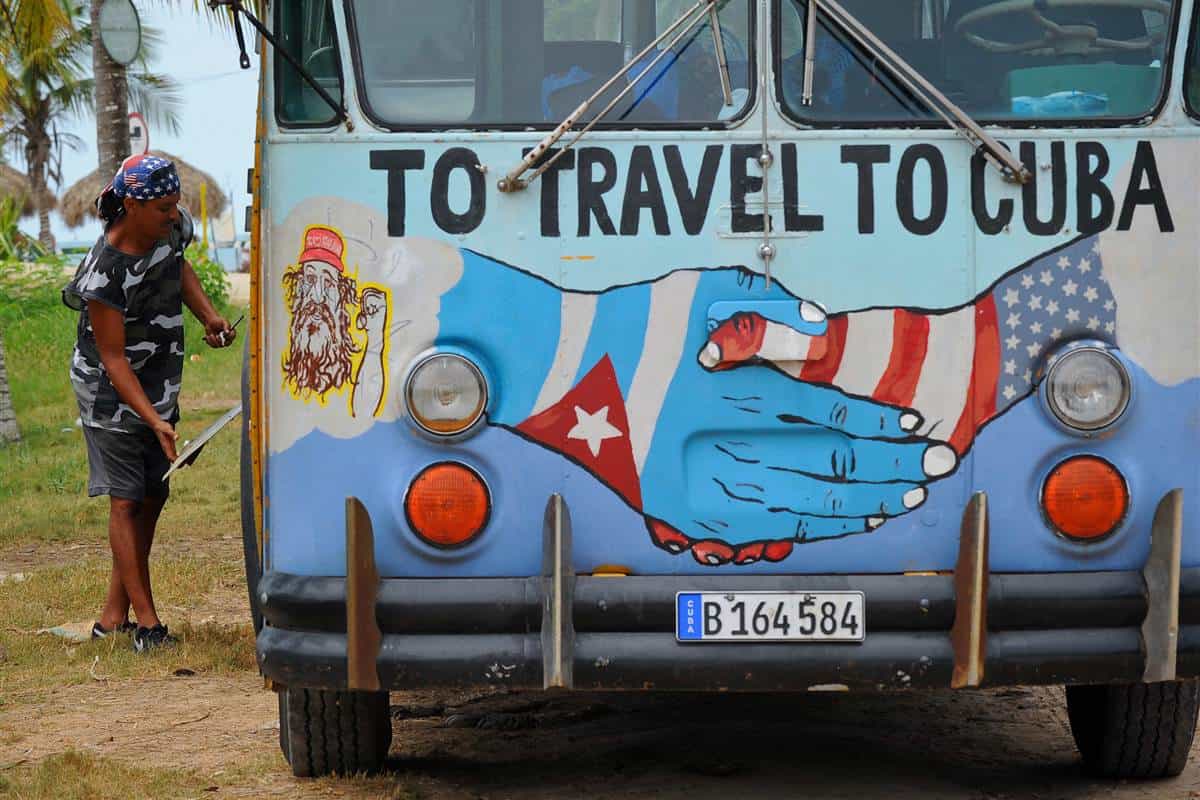
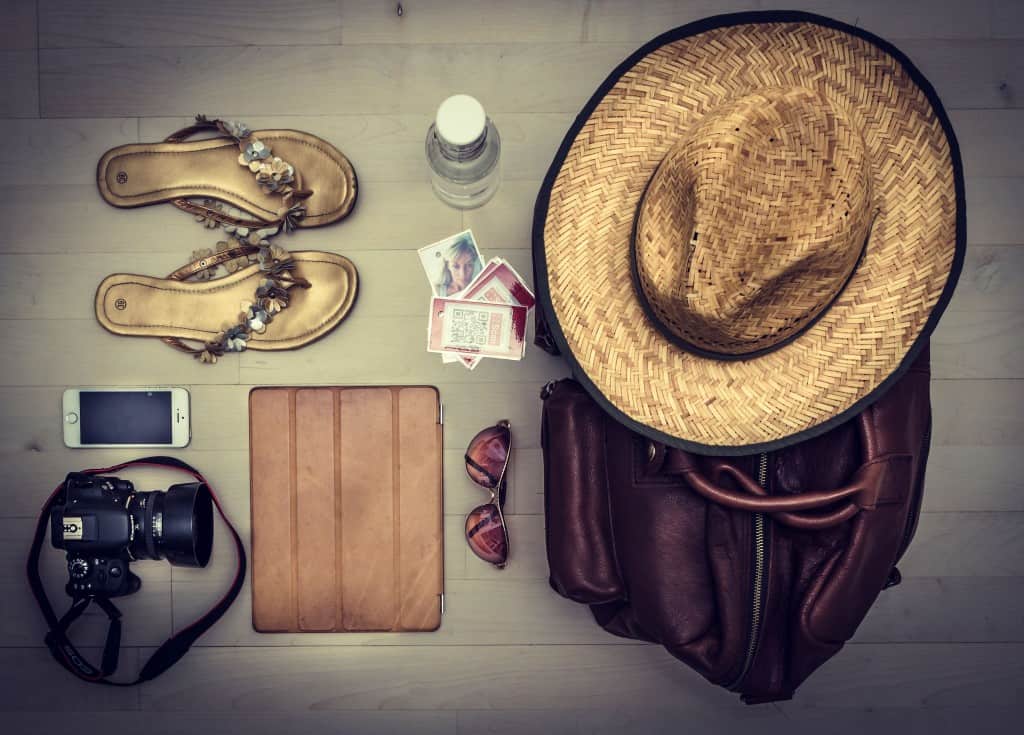
I had to have 30 bites on my legs feet and arms after 2 days, and some are still itchy 12 days later. My wife had none and we were together all the time. The Air Transat employee said that some people are particularly attractive to them. He suggested gin & tonic as a repellent. I didn’t try it because the resort was short on gin.
For this reason alone, I will not go back to Cuba. Never had this issue in Mexico, Bahamas, Dominican. etc.
Just came back from Cayo Coco (August 2022). I have a nasty case of sand flea bites all over my body. Legs, arms, back. The itch is unbearable. I used deet containing bug repellant but it did not prevent the bites. The lesions from the bites did not come out until a few days after so it was hard to identify what caused it. I thought it was bed bugs at first but our room and bed was clean. In hindsight, we should’ve hung out at the pool. But the beach was so beautiful that we foolishly just stayed there “surviving the bites” until it got too hot for the fleas midday. I’ve never experienced sand fleas before and I’ve been to many beaches. Wish that something could be done about it because as much as I loved the resort and Cayo Coco, I don’t think I’d go back.
Years ago on a boat trip in Belize I learned that the fleas bite bad in the evening and we covered our legs with baby oil in the evening and went to the beach and ate at outside restaurants and I was not bothered by the sand fleas. First time ever😳😜
Just came back from Cuba may 14 to may20 2022 and lots of bites from mosquito and I think sand fleas very annoying I don’t think bug repellent helped .
I have traveled to Cuba many times and have been literally attacked by sand fleas constantly to the point where the itching was unbearable. At the time I wasn’t prepared to deal with it as I had no repellent or after bite. I finally asked one of the hotel workers what I could do to stop the itching. His reply shocked me, he said senior you must take rum. I was rather upset at his answer and said am I supposed to get drunk to stop the itching? He said no senior, put the rum on the bite’s. Well to my surprise it worked, the alcohol seems to temporarily stop the itching. After traveling to several Caribbean islands Cuba is the only place where I have trouble with insect bites. I now go with bug spray and wear long pants in the evening. Good luck
I didn’t experienced any send fleas in Varadero Paradisus Cuba.
I was few times early morning on the beach and we had two night parties and evening show.
But I was “attacked to the bone” by fleas in Dominican Republic in Puerto Plata🤦🏼😩
Hello,
I enjoyed reading your tips. I am a bug magnet and I can be eaten by mosquitoes while my husband doesn’t have one near him! One year in Cayo Coco I had a nasty case of sand flea bites and the one thing that worked for me was lathering on coconut oil. It gave relief from the itching. Worth a thought for your readers.
Thank you for the tips. We are headed to Cuba for the first time in April. I have not had a twinrix shot and I worry a little about this. We have been to Jamaica twice and no shots were needed to go there. We were planning to go back again this year and then decided to try Cuba. Now, I don’t think I can get the shot. Do you happen to have any tips to share as to what I need to avoid. Thank you
I was told to not touch raw veggies and fruits. My all reason to go to tropics is only warm water in ocean and fresh fruits🤦🏼
But Cuba is Cuba.
I was only eating hot and cooked food. Lots of fried fish, shrimps, fries, pasta, rice with meat and cooked veggies, coffee, wine, booze🤣
I didn’t touch cakes or ice cream.
For delicious food I go to Cozumel Mexico 😋
Oh and I washed my teeth with Mouthwash instead of water.